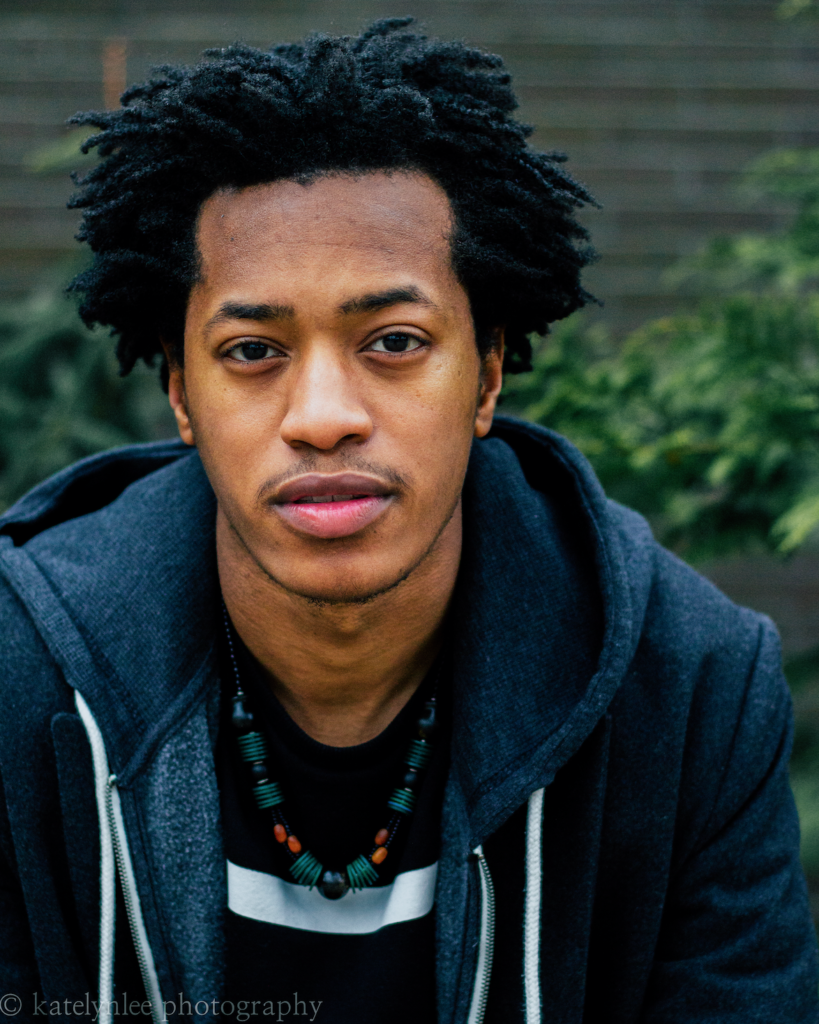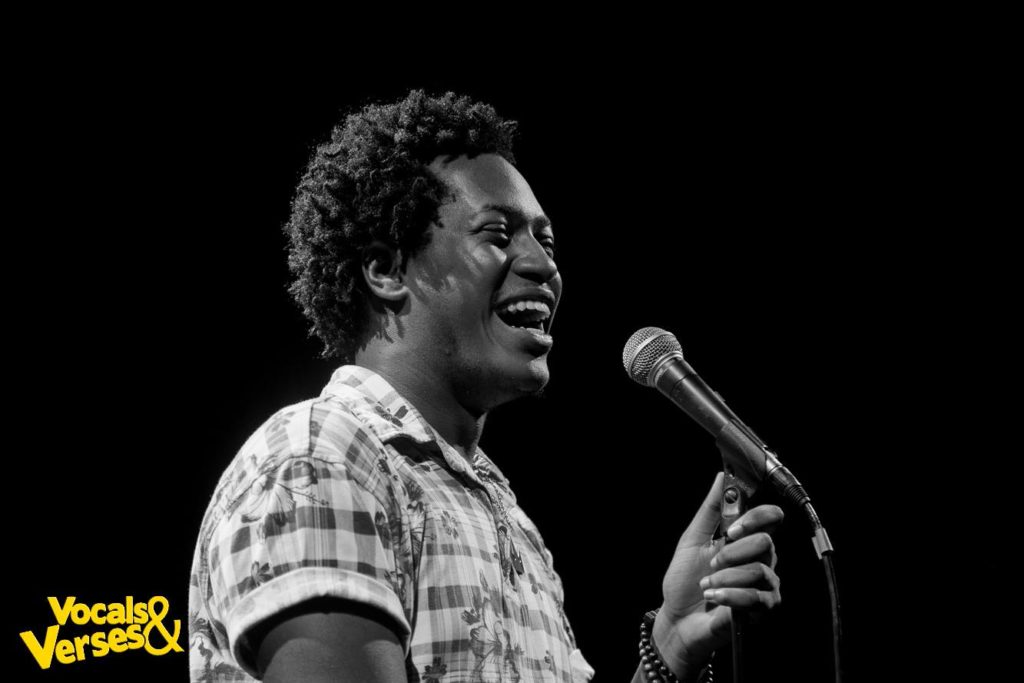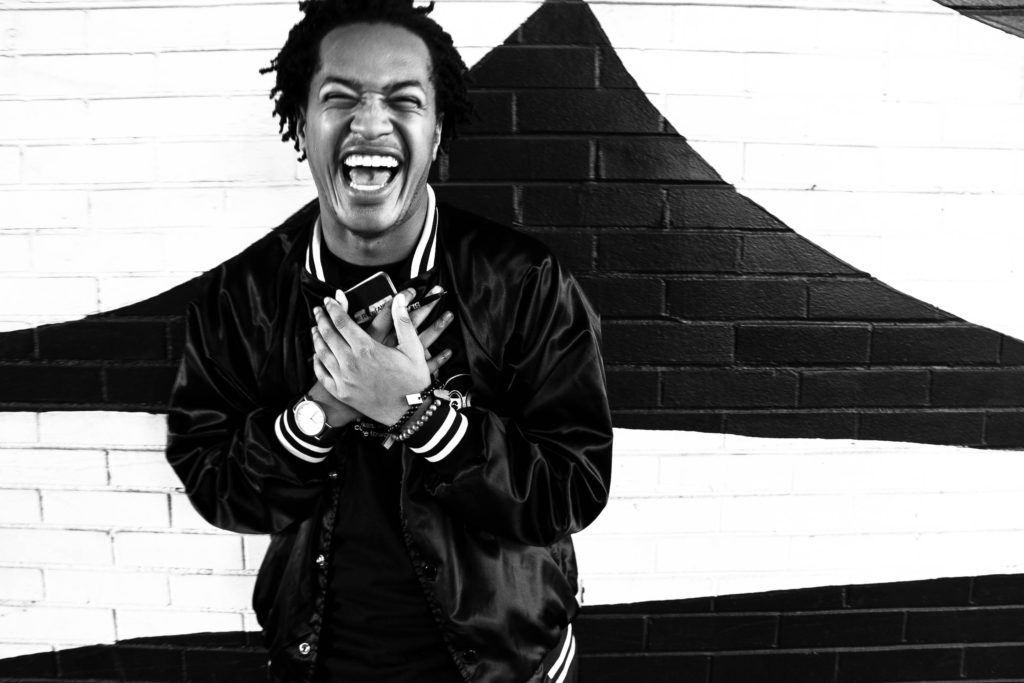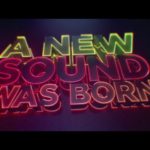Culture Spread: Savon Bartley, Poet, Writer & Educator
Hip-hop seeped its way into the life of a north Chicago kid raised in a home where Kirk Franklin cuts where the closest thing to rap in rotation. Now a young adult, and a poet, the same Chicago kid has seeped his way into classrooms in Trenton, NJ, NYC and surrounding areas.
Savon Bartley is a full-time poet that spends some of his time working as a teaching artist. Contracted by non-profit organizations like Urban Word NYC, Bartley uses his love for poetry and hip-hop to connect with students from middle school through college. He breaks down everything from Kendrick Lamar to Waka Flocka Flame in order to teach his students about literary devices.
I got to a kid, and I say, “Aye, when Kendrick says, ‘Got me breathing with dragons/I’ll crack the egg in your basket, you bastard/ I’m Marilyn Manson with madness/Now just imagine the magic/I light to asses/ don’t ask for your favorite rapper/He dead.’- what are the literary devices that you just heard?” And they’ll say, “meter,” and they’ll say “metaphor” and they’ll say the actual thing.
Bartley acknowledges that people may find his way of teaching literature a little unorthodox, but he says that he has found Hip-Hop to be the best way to connect with the youth in the NYC area.
The educators look at me weird. They’re like “Are you seriously teaching Wayne right now? This isn’t what we hired you for.” I’m like “No, but they understand.”
These are kids in the Bronx, and Brooklyn, and Trenton, NJ. This isn’t prep school. Nothing against that, but in order for me to be able to walk in a place and teach literacy, and form, and craft and writing, I have to have something that’s accessible to them, and something that they understand. Right now, for me, what I found that works is rap. They listen to rap. They will sit there and listen to a Wu-Tang song and we can analyze it and we can put it on something passed writing. I can teach you how to write the 16, but I can also teach a couple life lessons that come along with this song.
“If they can memorize a whole verse, they can read a book. They can read Shakespeare.”
While the teachers may not understand how Hip-hop itself allows Bartley to teach writing and literature, they can’t deny that he has been able to reach the students in ways that their day-to-day teachers cannot.

I’ll be like “Why don’t you like your teacher?” “Oh, she’s boring.” “Why is she boring” “Because she talks slow.” So I’m like, “ Well, if I say everything that your teacher is saying, why is it hat you listen to me, but you don’t listen to your teacher?” It’s because of the meter, and because everyone has a natural sound coming out of their face, and because their teacher doesn’t have the right rhythmic tone behind her speaking. If you’re not saying it in a way that interests the people that you’re talking to, then it’s going to go over their heads and no one is going to listen to you – no matter how important it is.
You have to use tools that reflect what these people are going through right now. If you’re 12 in 7th grade then you’re listening to J.Cole. So what I’m going to do, I’m going to listen to J.Cole. I’m going to find the message. I’m going to find the literary devices that I want to talk about, or just the terminology and vocabulary, and we’re going to apply it to this whole album and this is going to be your semester.
Bartley’s technique is an important lesson to all educators and public speakers about the importance of meeting people where they are. We discussed the argument that standardized testing often fails children of color because the content isn’t relatable and Bartley quickly described how the same is true for connecting with students in the classroom.
They’re not interested in these things you’re talking about, so of course, they’re going to score low because they’re not paying attention in class—because you’re not talking to them. But if they can memorize a whole verse, they can read a book. They can read Shakespeare. They can read Rawling or do any of math that you have in your head. If I can play ‘Mathmatics’ by Mos Def, best believe I can come up with a two-week curriculum about numbers, and they’ll be able to grasp it.
When I leave or I’m sitting and talking with the principle and they’re telling me, “How did you get such and such to write a whole page? We can never get them to write more than two sentences.” And I’m like, “Why not? That doesn’t make any sense to me. They just wrote three stanzas.”
“Not only are we increasing literacy here, but we’re also building community.”
These kinds of small victories often lead faculty members to suggest that Bartley become a full-time educator in one of his assigned schools. The 22-year old black male is a rare commodity that many of the schools want to keep for themselves. Young and relatable, he’s even had success in getting students to open up about their personal lives and explore their own artistry.
These kids are going through stuff. There’s a whole life outside of education for them. Once they leave the classroom, they’re dealing with poverty, single parent homes, siblings, death and all of these things are real to these kids. These teachers don’t understand that, so they don’t see them as people they can talk to about it. But I walk in, and we play To Pimp A Butterfly, and I’m like “I can get you talking about these topics.” Not only are we increasing literacy here, but we’re also building community and giving them an outlet.
As expected, working with the youth has provided Bartley some pretty rewarding experiences. The fresh perspective and open honesty that comes from some of the work he reads has been inspirational. Bartley admits that he has been blown away by the skill and vulnerability of students he works with. He often feels convicted by the honesty in their writing, and it has made a huge impact on how he looks at his own work.
“I’m going to write this, and you’re going to bang with it, because it’s me, and it’s dope.”
I don’t even know how to explain it. They’ll write something, or they’ll share, and it’s always difficult because they’re young and they’re embarrassed and they’re insecure. But, I’ll read their work, and it’ll be better than mine. It will be at a certain level that you wouldn’t expect. Like, “You’re 13, how the heck do you know how to write about this so eloquently and intelligently?”
They’re so honest. As an artist, it’s always difficult to put out work that you’re proud of. You never want to show the first draft, or the second draft, or the third. We always want to show the polished, perfect, crafted, piece of whatever. They don’t care. They sit there and they write for 10 minutes, and it’s bar after bar after bar after bar. And I’m like, “You’re so confident. You really don’t care.”
This is like they’re saying, “I’m going to write this, and you’re going to bang with it, because it’s me, and it’s dope.” It’s such a reflection on how I need to really look at my work and say, “Am I being as honest as I’m telling them they need to be?” Then it’s a conversation of, “Am I being honest with myself? Am I a hypocrite because I’m telling them to be vulnerable and I’m not doing the same? Should I be writing a different poem right now? Is the work that I’m working on, necessary at the moment? Am I hiding behind something?”
![]()

It’s very impactful and makes me interested in what our youth are going to be bringing into our world really soon. I’ve seen it, I’ve been working with them, and they’re bringing some fire. Whether it’s poems, raps, songs or anything artistically, or even intelligently, they’re going to be a problem. The status quo that the country or society has, they’re really going to flip it upside down. I’m getting my popcorn ready. Whatever your normal is, they’re just going to run over it.
Although Bartley isn’t completely sold on becoming a full-time teacher, he has no problem serving as a creative role model in the meantime. He can’t guarantee that he’ll be back in a certain school or glass in the next year or during the next semester, but he makes it a point to stay available for students that are interested in the arts. Staying in touch through email or simply providing pamphlets for open mic events helps Bartley ensure that students don’t feel abandoned when it’s time for him to move on.
It is important, especially for the youth that grip on to the work. Whether they write or write poems or any other arts. Some kids want to make film or they want to dance, or they want to sing. I’m like, “whatever it is you do, do that and I will do my best to provide a space for you to continue to do that.”
There’s no doubt that Savon Bartley is making a mark on the world by inspiring and allowing himself to be inspired by the artists of tomorrow. Although it seems like a great idea for him to take the reigns as a full-time teacher, one can’t help but wonder if traveling around NYC, spreading knowledge, literacy and hip-hop is exactly what this young man should be doing.
To learn more about Savon and his work, visit SavonBartley.com



